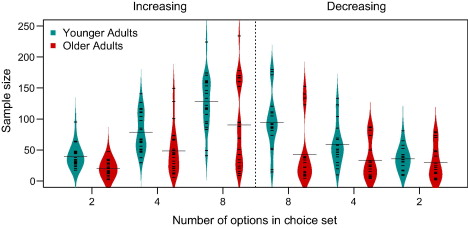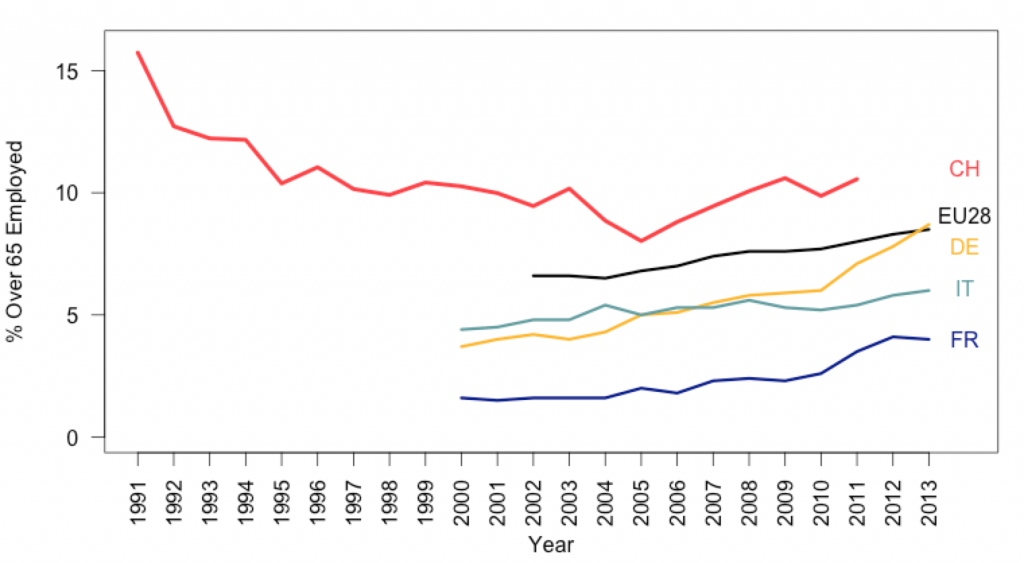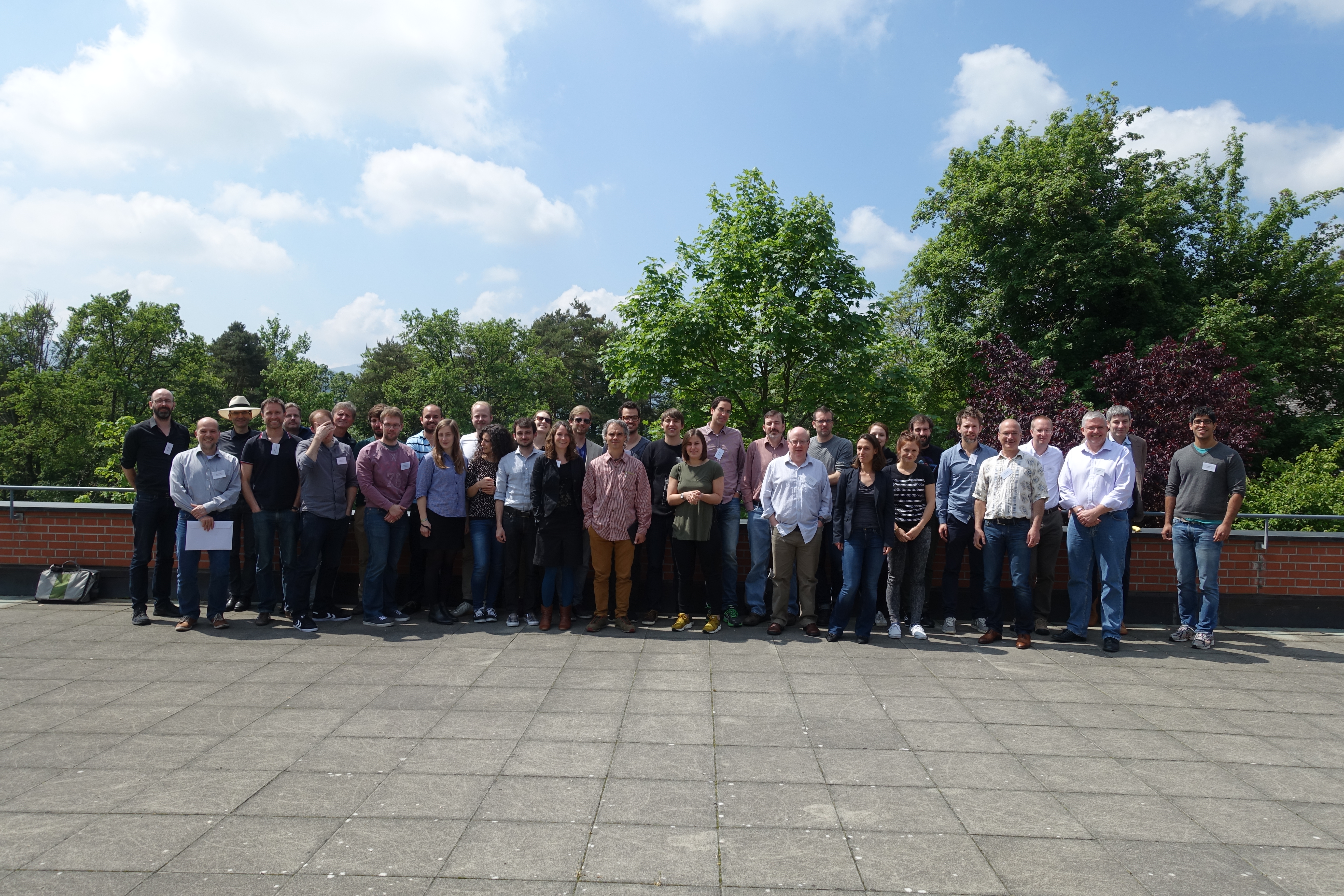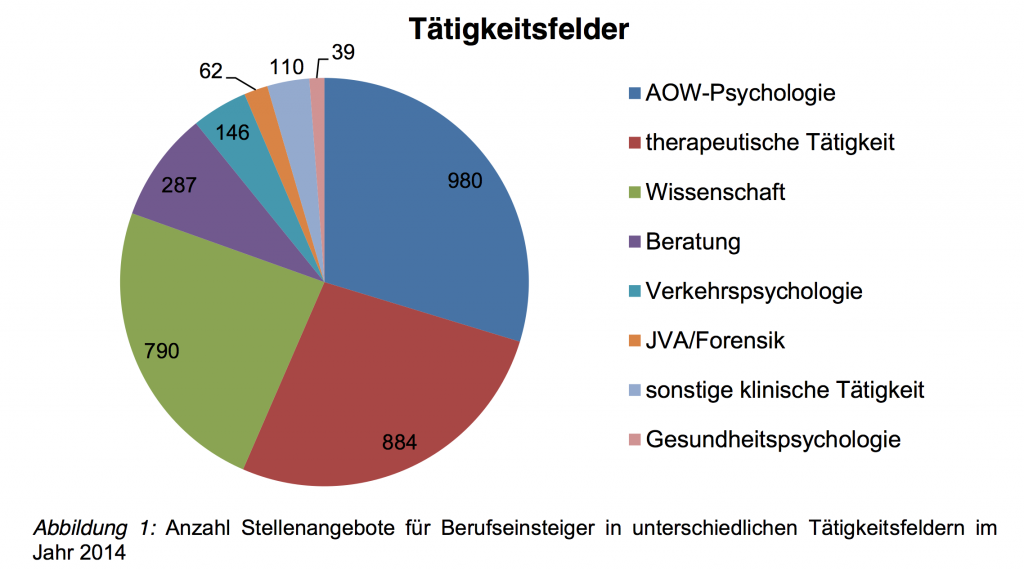
Renato Frey, Ralph Hertwig, and I have a new paper out on age differences in decision from experience (i.e., decisions which involve learning about the probabilities of different outcomes through sampling). The results suggest that rather than age differences being observed across the board, they are a function of task complexity: Older adults show similar sampling (see figure above) and choice behavior when making decisions between 2 options but show reduced search and poorer choices in more complex environments involving 4 or 8 options. In a nutshell, aging doesn’t affect decision making across the board but rather as a function of increased task demands…
The role of cognitive abilities in decisions from experience: Age differences emerge as a function of choice set size
“People seldom enjoy access to summarized information about risky options before making a decision. Instead, they may search for information and learn about environmental contingencies—thus making decisions from experience. Aging is associated with notable deficits in learning and memory—but do these translate into poorer decisions from experience? We report three studies that used a sampling paradigm to investigate younger (M = 24 years) and older (M = 71 years) adults’ decisions from experience. In Study 1 (N = 121) participants made 12 decisions between pairs of payoff distributions in the lab. Study 2 (N = 70) implemented the same paradigm using portable devices, collecting 84 decisions per individual over a week. Study 3 (N = 84) extended the sampling paradigm by asking participants to make 12 decisions between two, four, and eight payoff distributions (in the lab). Overall, the behavioral results suggest that younger and older adults are relatively similar in how they search and what they choose when facing two payoff distributions (Studies 1 and 2). With an increasing number of payoff distributions, however, age differences emerged (Study 3). A modeling analysis on the level of individual participants showed that a simple delta-learning rule model best described the learning processes of most participants. To the extent that ongoing updating processes unfold relatively automatically and effortlessly, older adults may be liberated from the detrimental consequences of cognitive aging in the case of decisions from experience with few decision options. We discuss implications for research on decisions from experience and choice performance over the lifespan.”



